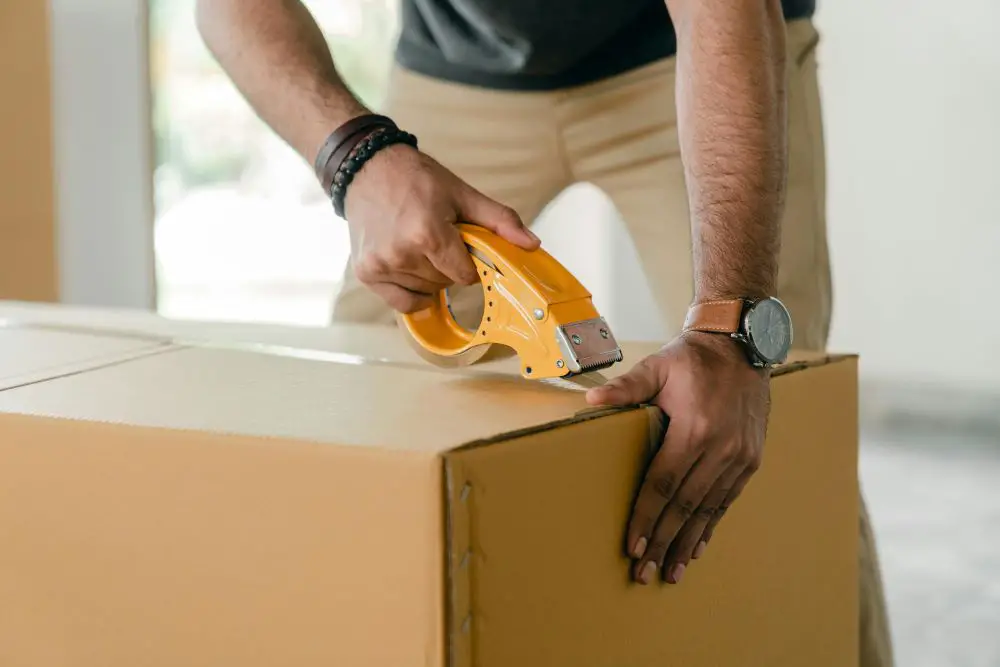Environmental Impact of Business Relocation: How to Move Sustainably
![[node:title]](/sites/default/files/styles/wide/public/Boxes%20on%20a%20table%20Environmental%20Impact%20of%20Business%20Relocation%20How%20to%20Move%20Sustainably.jpeg?itok=rJCyCT91)
Relocating a business is a significant undertaking that involves much more than just packing boxes and transporting them to a new location.
The environmental impact of business relocation can be substantial, affecting the immediate community and the broader ecosystem.
Therefore, it's important for businesses to consider sustainable practices to minimize their environmental footprint during this transition.
Planning for a Sustainable Move
The first step in achieving a sustainable move is thorough planning. Assessing the environmental footprint of the current location is essential.
That includes evaluating energy consumption, waste generation, and resource use. By understanding these factors, businesses can set clear sustainability goals for their new location.
Involving the team in planning eco-friendly strategies can foster a culture of sustainability and encourage innovative ideas that might otherwise be overlooked.
Choosing an Eco-Friendly Location
Selecting a new location is an essential decision that can have lasting environmental impacts. Researching locations with green certifications, such as LEED or BREEAM, can ensure the new office is designed with sustainability in mind.
It's also important to consider the environmental policies of potential new locations, including their energy sources and waste management practices.
In addition, evaluating the impact of commuting and transportation on your carbon footprint can lead to more sustainable choices, such as locations near public transit or implementing flexible work-from-home policies.

Movers are essential in ensuring a simple and efficient transition, which can reduce the environmental impact of business relocation.
Engaging Employees in Sustainability Initiatives
For sustainability efforts to be successful, employee engagement is essential. Educating employees on sustainable practices and creating a green team to oversee environmental efforts can foster a collective commitment to sustainability.
Incentivizing eco-friendly behavior among staff can also be effective. Simple actions, like turning off lights when not in use or reducing water waste, can collectively make a big difference.
Sustainable Packing and Moving Materials
Packing and moving generate significant waste, which can be mitigated with thoughtful choices. Opting for recyclable and biodegradable packing materials is a simple yet effective strategy.
Reusable containers and crates can drastically reduce the amount of waste generated. Avoiding plastic and other non-sustainable materials is important.
Many companies now offer eco-friendly packing supplies that are just as effective as traditional options but much kinder to the planet.
Minimizing Waste During the Move
Waste minimization should be a priority during any relocation. Conducting a thorough inventory and reducing excess items can help simplify the move and reduce waste. Unwanted office equipment and furniture can be donated, sold, or recycled instead of being discarded.
Implementing a zero-waste policy for the move can set a strong example and significantly reduce the environmental impact. This approach benefits the environment and can result in cost savings.

Unwanted office equipment and furniture can be donated, sold, or recycled.
Energy-Efficient Transportation
The choice of transportation can have a significant environmental impact. Choosing moving companies with a commitment to sustainability ensures that eco-friendly practices are followed.
Energy-efficient vehicles and equipment should be prioritized. Planning routes to minimize fuel consumption and emissions is another effective strategy.
Some moving companies offer green moving services that use biodiesel trucks and other sustainable options.
Setting Up a Green Office
Once relocated, setting up a green office is essential for maintaining sustainability. Investing in energy-efficient lighting, heating, and cooling systems can significantly reduce energy consumption. Sustainable office furniture and supplies made from recycled or eco-friendly materials should be considered.
Implementing recycling and composting programs in the new office can further reduce waste and promote a culture of sustainability among employees.
Digital Solutions to Reduce Paper Use
Transitioning to a paperless office environment is one of the most impactful steps a business can take. Utilizing cloud storage and digital communication tools can greatly reduce the need for paper.
Encouraging electronic documentation and billing can simplify operations and reduce waste. Many businesses have successfully transitioned to digital solutions, resulting in significant environmental and financial benefits.

Always be thorough when calculating your budget for a commercial move, especially for international ones.
Monitoring and Reporting the Environmental Impact of Business Relocation
Finally, it's important to monitor and report on the environmental impact of the relocation, be it domestic or international. Tracking energy usage and waste reduction before and after the move provides valuable data for future strategies.
Reporting on the environmental impact of the relocation helps maintain transparency and accountability. Adjusting strategies based on data and feedback ensures continuous improvement in sustainability efforts.
Promoting Sustainability Beyond the Move
Sustainability shouldn't end once the move is complete. Promoting sustainability beyond the move ensures long-term environmental benefits.
Continuously educating employees about sustainable practices keeps the momentum going. Regular workshops and training sessions can introduce new eco-friendly techniques and technologies.
In addition, partnering with local green organizations for community projects can enhance your company's environmental impact.
Engaging in activities like tree planting, recycling drives, or clean-up events demonstrates a commitment to sustainability.
Further, businesses can adopt policies prioritizing procurement sustainability by choosing vendors and products that adhere to green standards.
By integrating these practices, businesses can create a lasting culture of sustainability that extends well beyond the initial relocation, ensuring ongoing environmental stewardship.
Leveraging Technology for Sustainable Moves
Incorporating technology can significantly enhance the sustainability of a business move. Leveraging technology for sustainable moves allows for better planning and execution.
Utilizing project management software, for example, can make the relocation process easier, reducing the need for physical meetings and paperwork. Virtual tours of potential new locations can minimize travel, reducing carbon emissions.
Also, advanced logistics software can optimize moving routes and schedules, ensuring fuel-efficient transportation. Implementing IoT devices in the new office can monitor energy usage in real-time, allowing for immediate adjustments to reduce the environmental impact of business relocation.
In Conclusion
Reduce the Environmental Impact of Business Relocation
The environmental impact of business relocation can be significant, but with careful planning and execution, it is possible to move sustainably.
By setting clear goals, choosing eco-friendly options, and engaging employees, businesses can minimize their environmental footprint and promote a culture of sustainability.
Making sustainability a core value not only benefits the environment, but can also enhance the reputation and efficiency of your business.
Therefore, it's essential to consider the environmental impact of business relocation in every aspect of the move, from planning to execution to monitoring.




















